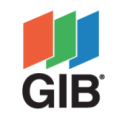
Amanda Stanes is the General Manager at Keystone Trust. Amanda joined the Keystone Trust in 2020, bringing more than 30 years’ experience in fundraising and relationship management to the role.
Amanda spoke at BuildUP24 in the Next Gen Quick-fire showcase about understanding and getting the best out of the next generation. Her presentation went down so well we wanted to share her thoughts with you here. The following is taken from Amanda’s notes for her presentation and slides that went with it.
I lead Keystone Trust and we work with Gen Z or Zoomers. They are diverse, fascinating, future focused, anxious, and generally think very differently as their priorities are very different. I’d like to talk about who they are, how they think and some the practical ways we work with them. I hope you find some of the suggestions I offer useful to you. One area I am not going to talk to is neurodiversity. This is a whole other area and a growing area of concern and research.
I’m sure you remember when Chloe Swarbrick used this phrase in parliament, and I thought it’s a good place to start. How did it make you feel? Because it is a put down – a response to older people, who are perceived as being out of touch with modern attitudes and culture.I am an ‘on the cusp’ boomer, my husband is from the Silent generation, my daughter is a millennial, the Keystone Trust students are Zoomers. You are probably already managing a couple of generations in your firm now – the boomers and the Millennials – now you’re adding another very different other into the mix.
What does a zoomer look like?
Well, they probably have a lot fewer wrinkles than I have, but that’s only due to better collagen production and not because they have no cares in the world. This generation has anxiety like no other generation. The 2008 recession, the Canterbury earthquakes, climate change and the recent floods, and COVID 19 are all significant examples of how Gen Z has been impacted by financial and emotional instability in their formative years.
While you might think these experiences would make this generation more risk-averse the opposite is proving true. Gen Z are much more transient in their approach to work, with many having side hustles or multiple revenue streams throughout their formative years to gain stability without relying on a single income source. I have a student who was doing side hustles at school – importing vintage American school clothing, creating a website, promoting it through social media, and selling through Trademe and Amazon. He is funding his study with this and our scholarship. Anxiety is through the roof. In New Zealand, Zoomers have the highest rate of diagnosed depression and anxiety among any generations.
With the Great Reshuffle, and quiet quitting, they tend not to stay in the same jobs as long as previous generations, with 40% wanting to leave within two years. 35% would leave even without having another position lined up. Secret Sounds Connect, NZ, has released its annual research study looking at cultural and social trends shaping 2024 across New Zealand and Australia, the study reveals that the majority have discarded the “life blueprint” of their predecessors, with a focus on living in the moment, being happy and bonding with friends above being successful in their career (29%), getting married (13%) having kids (33%) or buying a house (26%). With over half of Zoomers not surprised if the world ended within their lifetime, they are well and truly living for today! And that is quite possibly the most significant change in mindset from yours or my value set and thinking about the future. It’s enough to make you very anxious.
What does this generation expect at work?
Their unique relationship with technology sets them apart from previous generations, as they have grown up with digital technology as a norm – they don’t know about a world where a phone is attached to a cable on a desk, or a fax machine. They have access to information in their pockets and as a result, they have different expectations for the workforce. For them they are hungry to use the very best tools available to them to be more efficient and effective and to challenge their understanding of the work they do.
Zoomers are really focused on bringing their authentic self to the workplace – they understand their values, emotions and competencies and are probably more self-aware than other generations. They are not snowflakes. They don’t leave their world at the office door like so many of us had to do and then pick it up when we leave in the evening. That ‘sink or swim’ attitude from a manager doesn’t do it for them, and they will up and leave. They are transparent in their comms and they share – everything – for example, they share what each other is getting paid. They are eager for promotion and want exciting projects and contracts to work on that keep them engaged and future focused.
Zoomers are keen to work offshore, and travel is important to them – the OE has not died even though carbon miles are becoming more important to them. They want to work for a company that has great brand recognition in the community, and they want a sense of purpose in their work – it’s not all about ‘working for the man’, it’s about working for something bigger than themselves, broader outcomes and delivering back to communities.
Why do we get into so much trouble intergenerationally?
Understanding the different generations in the workplace is key to positive intergenerational relationships. For example, never underestimate the power of feedback and taking the time to give it - many of us are used to having an annual performance review. Zoomers are used to and need more feedback – they are used to this from their NCEA and tertiary studies. Many of us think, well, no one’s told me I’m doing a bad job, so I’ll work on the premise that I’m doing a good job.
Zoomers can’t operate in that vacuum and instead they will fill that space up with self-doubt. We check in with our students frequently – formally and informally.
You may see yourself and your generation as generally having a strong work ethic and expect the same from their co-workers. In contrast, Zoomers are often seen as being more interested in work/life balance, flexible hours, and paid time off. Think about your values in comparison to the ones I’ve just outlined for Zoomers, think about your behaviours in relation to how you perceive a Zoomer versus how they perceive themselves.
What’s acceptable – is sending your client a text when you would be expecting the employee to pick up the phone acceptable? Explain why not – from a values perspective and find out why they want to do it that way – perhaps some comms skills training is necessary.
How do we advance the conversation?
To enable learning, you must understand what drives each individual. What are their motivations, their biases? What are their strengths? Create an environment where each generation feels supported and capable of contributing to the team.If Boomers dismiss Gen Z, then they’ll just follow suit. But if we choose to get past the “OK, Boomer” comeback, we’ll advance the conversation. When we hear “OK, Boomer,” let’s check the urge to shoot back with “OK, Zoomer” and instead: Start listening and be curious. Bring them back by asking questions, listening to the answers, and engaging with their point of view as they may be able to add something new to the conversation. There’s no quicker way to earn the “OK, Boomer” response than to shut down their contribution with a frustrating “because I said so” approach.
Show respect and think of the tone you use. Respect works very differently today than it did in years past. Millennials and Gen Z don’t automatically accord respect to older generations; they expect it to be earned. However, if they feel respected first, they quickly reciprocate. To older generations it may feel backward, but letting go of certain expectations can go a long way toward mutually beneficial interactions. Create opportunities for mentorship.
Provide mental health support – it’s not being sissy. You all know of MATES in construction – well, it’s there for a reason. With 68% of Gen Z saying they are stressed and 50% of them are prioritising their health, maybe it’s not a bad thing to be thinking about your team’s collective mental and physical health. Make sure everyone takes regular breaks – especially in hot weather – make sure everyone gets time to disconnect from work and help manage the workload.
Keep it civil. If young people aren’t willing to engage in civil conversation, older generations should ask themselves why. Maybe we Boomers haven’t always modelled that willingness ourselves. Better late than never, right? We don’t have to see eye to eye to engage in a civil dialogue. The way young people see things may be different, but different is not necessarily wrong.
Don’t be a parent – avoid transference – this individual is not your child. There is nothing a Zoomer or any employee for that matter despises more than for an older staff member to act like their parent!
Explain the meaning of the words you use – the meanings of words can be different between generations. For instance, for Boomers, the word effort might mean achieving key performance indicators (KPIs) and planned objectives. At the same time, for Gen-Z, effort might mean doing all that one can do regardless of results. And when you see a Zoomer on their mobile. Don’t go thinking the worst all the time, they may be posting an Instagram post about the project they are working on and the amazing company they are working for.
Overall, what I am saying is this – intergenerationality is all about change and that does take courage and integrity and energy– but it grows trust so may I suggest you think about your values and what you want for your team, your company and your clients, and work to grow the next generation.
It is up to us to attract and retain talent into the sector. It is up to us to ensure there is a transfer of knowledge between generations, that we as an industry don’t just tick boxes, that we embed drivers such as sustainability, diversity, mental health and wellbeing into our daily practices and capabilities. t
If we do all of this, we will overcome the Ok Boomer retort.










